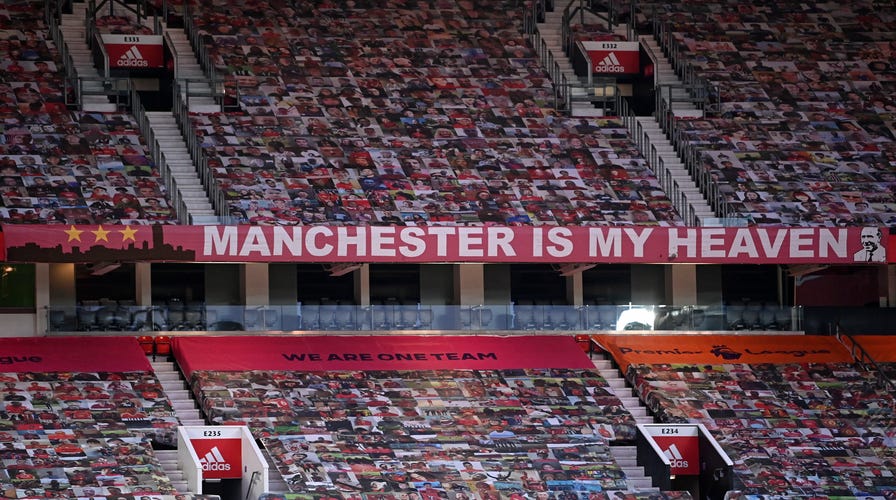Fox News Flash top headlines for January 27
Fox News Flash top headlines are here. Check out what's clicking on Foxnews.com.
European football teams face losing up to $10 billion due to disruption caused by the coronavirus pandemic, according to the latest forecast of the umbrella organization for clubs on the continent.
Supporters have been kept out of stadiums in Europe's main leagues longer than anticipated as the second wave of COVID-19 cases has devastated the continent.
CLICK HERE FOR MORE SPORTS COVERAGE ON FOXNEWS.COM
Andrea Agnelli, the Juventus chairman who leads the European Club Association, said it would be "extremely difficult" to see spectators being allowed back in this season. There have also been rebates to broadcasters and sponsors due to the pandemic after some leagues, including France, were abandoned last season and others paused for up to three months.
"When I look at the best information I’ve had so far, we’re looking at a bottom-line loss for the industry in the region of €6.5 billion ($7.9 billion) to €8.5 billion ($10.3 billion) for the combined two years," Agnelli said on a News Tank Football virtual event on Wednesday.
Italy — like England — had brought a small number of fans back into some stadiums but had to prohibit access again as part of a national effort to contain the resurgence of coronavirus cases. There are concerns about the financial impact on the value of broadcast rights to games.
"About 360 clubs (in Europe) will need cash injections, whether it’s debt or equity within those two years, for an amount of €6 billion ($7.2 billion)," Agnelli said.
CLICK HERE TO GET THE FOX NEWS APP
Just as the ECA is in talks with UEFA about the distribution of Champions League revenue, Agnelli is painting a gloomier picture of the state of club finances than Deloitte. The accountancy firm reported this week that the top 20 revenue-generating clubs lost around €1.1 billion ($1.3 billion) last season and their turnover could drop by €2 billion ($2.4 billion) in this campaign.
"The revenue that’s been missed out on is driven by the lack of fans in the stadium, the lack of interaction on a match day — fans spending in the club shop and buying food and drink — and there is an element that relates to revenue that broadcasters have either clawed back (or deferred) to next year," said Tim Bridge of Deloitte.

